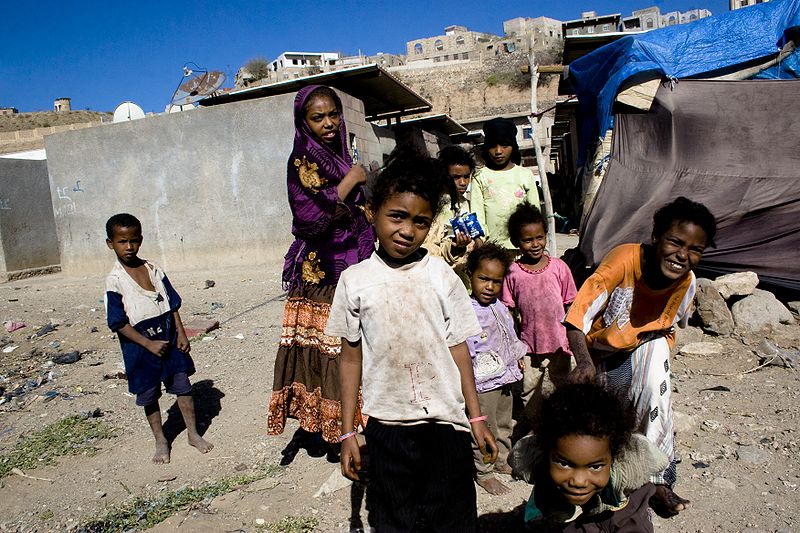AhlulBayt News Agency (ABNA): The UN double standards on human rights violations and war crimes in Yemen war has once again showed itself. On Monday, the UN in a largely weird move blacklisted Ansarullah Movement in Yemen for alleged “abuses” to children’s rights.
The blacklisting comes as daily bombardment by the Saudi aggression coalition goes unabated and there is a long list of documented Saudi war crimes in Yemen.
Yemenis outraged by the UN move
Sana’a officials denounced the UN Secretary-General's decision against Ansarullah as a move aimed at retaining his post by "trampling on the blood" of Yemeni children and under the influence of Saudi petrodollars.
The Yemeni parliament at a meeting, chaired by Yahya al-Raee, condemned the decision by the UN.
The Yemeni parliament said that the UN and the Security Council are sitting just as “spectators” while the Saudi-Emirati coalition tortures children, women and the elderly in Yemen on a daily basis.
Reacting to the measure, Abdulaziz bin Habtour, the prime minister of the Sana’a-based National Salvation Government, condemned the blacklisting and said: “In the war against us, Saudi Arabia bought all of the United Nations and Security Council resolutions.”
Jalal al-Rweishan, the deputy prime minister for defense and security, held that it is “very unfortunate that the United Nations, which should be neutral, acts in this way and [its head] holds the post at the expense of the blood of Yemeni children.”
Taha al-Mutwakel, the Yemeni minister of health, was another figure in Sana’a to disparage the move.
“The Yemeni ministry of health has recorded the martyrdom of more than 3,000 children and the wounding of more than 4,000 others by the Saudi coalition bombing. Some of these injured children will remain disabled for the rest of their lives,” he was quoted as saying.
Mohammad bin Abdulsalam, Ansarullah's chief negotiator and official spokesman, reacted to the UN measure, saying that the UN "works in favor of the big countries" and that blacklisting Ansarullah was a "biased move."
Mohammed Ali al-Houthi, the head of Yemen's Supreme Political Council and a prominent Ansarullah leader, said that the move by the UN was not based on the realities on the ground and the reports of independent committees.
Social media users have also criticized the UN for its "hostile" action against the resistant movement, arguing that the UN has placed the Ansarullah movement on its list of child rights violators, while "acquitting the aggressor coalition, which is the real killer of the Yemeni people."
A user, Sayf Al-Quds, wrote the international community and the UN are the main accomplices of massacre of Yemeni people.
Another user, Ahmad al-Fadhili, published an illustration of the Saudi Crown Prince Mohammed bin Salman with bloody sleeves, with a caption reading, "the UN does business with humanity."
Yet another one, Bilal al-Ghiyathi, strongly condemned the Saudi aggression against people, asserting: "Save children from the US, UN, and Al Saud crimes. Save the Yemeni children from the evil of the criminals and bloody murderers. The UN kills the Yemeni children."
Long list of Saudi crimes in Yemen
The remarkable thing about Yemen is that the UN has added Ansarullah to the list of child rights violators, while Saudi Arabia, as the aggressor side in Yemen war, has the darkest record of human rights and war crimes.
According to figures released by UNICEF last year, more than 2,500 schools were closed during the war, two-thirds of which were damaged by rocket fire, and 7 percent of which were used as shelters for the displaced.
Referring to critical conditions the Yemeni children are in, the UNICEF declared that natural disasters, contagions, poverty, and war have deprived over 2 million children of education and threatens 5.8 million children who registered for school before the coronavirus outbreak. Because of war and blockade, the salaries of teachers are not paid in 11 provinces, it reported.
From 2015 to 2020, more than 7,227 children were killed and injured as a result of brutal Saudi attacks in various parts of Yemen, as the war, security, and future uncertainty create messy psychological conditions for children.
Another report released by UNICEF states that about 2.5 million Yemeni children are at increasing risk of malnutrition.
On the other hand, the World Food Program, the FAO, the UNICEF, and the World Health Organization, as four UN agencies, announced in a joint report that at least 400,000 Yemeni children under five in 2021 will lose their lives due to starvation if the current circumstances endure.
This is while many analysts believe that the Saudi aggression against the already-impoverished Yemen and destruction of its economic, public service, and social infrastructure has brought malnutrition, spread of disease, displacement, orphanhood, violent sights, and disruption of education.
Why is the UN adopting double standards?
Blacklisting Ansarullah as a children rights abuser bears witness to the UN double standards. There is no doubt that declining to blacklist the war wager, namely Saudi Arabia, is motivated by massive financial relationship between Riyadh and the Western countries. Before the war, the yearly American arms sales to Saudi Arabia was $3 billion. However from 2015, and after a US agreement to sell worth of $64.1 billion in arms to the Arab kingdom, the sales reached $10.7 on average per year. During these years, the arms sales to other war participants, mainly the UAE, substantially increased.
According to Stockholm International Peace Research Institute (SIPRI), since 2015, the year Riyadh waged the war on Yemen, Washington has been the biggest arms supplier to Saudi Arabia, with 73 percent of the Saudi weapons imported from the US.
Given these massive and tight relations between Saudi Arabia and other Western countries, it is obvious that the UN, as a pro-Western international body, does not add the partner of the West to the list of human rights abusers.
/129

